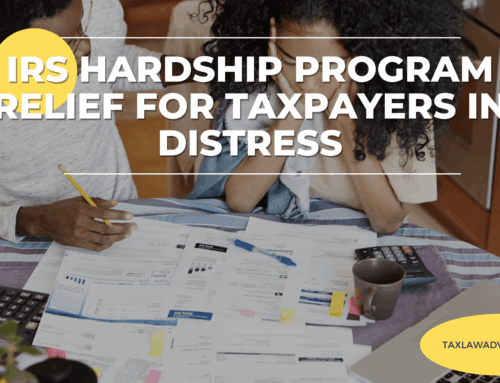Maintaining a strong credit score is an essential aspect of your financial health. Your credit score affects your ability to secure loans, mortgages, and credit cards. However, what happens when your financial matters intersect with the Internal Revenue Service (IRS)? Can the actions of the IRS impact your credit score? In this comprehensive guide, we will delve into this pertinent question, offering insights from the experienced professionals at Tax Law Advocates.
By understanding our perspective, you can gain clarity on the potential implications of IRS actions on your credit score. Furthermore, we will provide actionable steps you can take to mitigate any adverse effects.
Navigating the Relationship Between the IRS and Credit Scores
At Tax Law Advocates, we emphasize the importance of distinguishing between credit reporting agencies and the IRS. Credit reporting agencies such as Equifax, Experian, and TransUnion compile your credit history to formulate your credit score. In contrast, the IRS’s primary focus lies in tax collection and enforcement. While the IRS does not directly report to credit bureaus, certain situations exist where their actions can indirectly influence your credit score.
Unveiling the Indirect Impact on Credit Scores
Tax Liens and Public Records: As experts in tax matters, we highlight one potential indirect impact the IRS can have on your credit score—tax liens and public records. If you have unpaid back taxes and fail to address them, the IRS may place a tax lien on your property. This lien becomes a public record and could negatively affect your credit score. Credit reporting agencies might view it as a derogatory mark, potentially leading to a decrease in your score.
Collection Efforts: In cases where you owe back taxes and negotiate a payment arrangement with the IRS, they might categorize your account as “currently not collectible” or place it under an “offer in compromise” status. It’s important to note that while these statuses do not have a direct impact on your credit score, they could indirectly affect it if inaccurate information is relayed to credit bureaus.
Taking Proactive Measures to Mitigate Impact
At Tax Law Advocates, we believe in being proactive to counter any potential negative impact on your credit score due to IRS-related actions:
Timely Payment Plans: If you find yourself facing tax debt, it’s prudent to consider setting up a payment plan with the IRS. By taking this step, you demonstrate your commitment to addressing the debt, preventing the IRS from pursuing more aggressive measures that could indirectly affect your credit score.
Resolving Tax Liens: If a tax lien has been placed on your property, our advice is to collaborate with the IRS to swiftly resolve the matter. Once the lien is fully settled or removed, you can request credit reporting agencies to update your credit report, reflecting the accurate status.
Ensuring Reporting Accuracy: Regularly monitoring your credit report is a practice we strongly recommend. By staying vigilant, you can ensure that any IRS-related information reflected is accurate. If you come across any discrepancies, we encourage you to dispute them promptly to prevent potential negative repercussions for your credit score.
Insights from Tax Law Advocates
From the perspective of Tax Law Advocates, it is crucial to understand that the IRS is not directly focused on diminishing credit scores. However, their actions can indirectly contribute to such outcomes. To safeguard your financial reputation, addressing tax-related issues promptly is key. Seeking professional guidance is a cornerstone of this process. At Tax Law Advocates, we advocate for engaging expert advice when dealing with IRS matters. This ensures that your rights remain protected and your credit score remains unharmed.
Get In Touch With Tax Law Advocates
In summary, while the IRS does not have a direct role in lowering credit scores, their actions can indirectly impact them, especially through mechanisms like tax liens and public records. Tax Law Advocates underscore the importance of proactive measures, encompassing timely payment plans, resolving tax liens promptly, and ensuring accurate reporting. To successfully navigate the interplay between taxes and credit scores and to secure your financial well-being and creditworthiness, Tax Law Advocates provide comprehensive guidance and unwavering support.
To further explore our range of comprehensive services or to seek personalized assistance, we invite you to visit the official website of Tax Law Advocates. For direct and immediate support and advice, you can reach out to us by calling at 855.612.7777. Empower yourself with insights from industry experts and proactively manage any potential impacts on your credit score that may arise from IRS-related matters. By taking proactive steps and leveraging professional advice, you can ensure the vitality of your credit score and the stability of your financial future.






